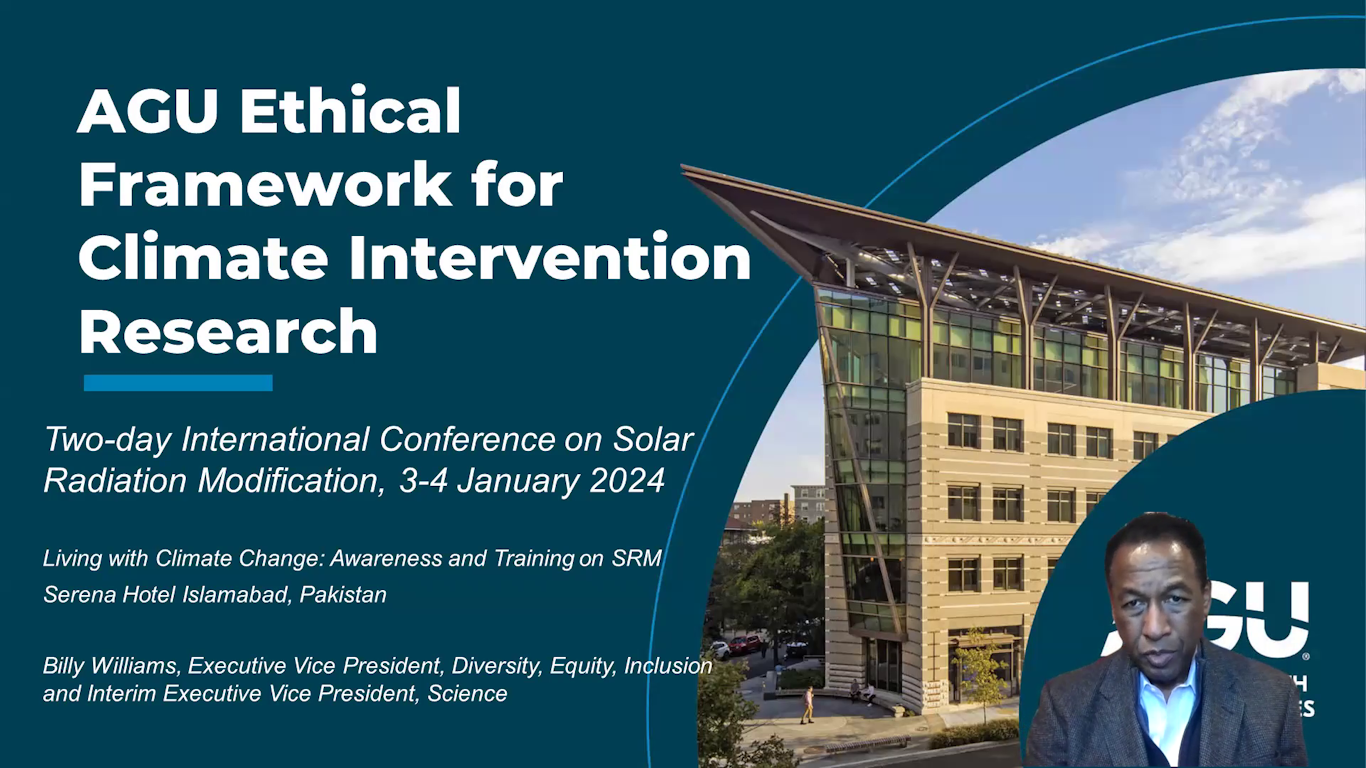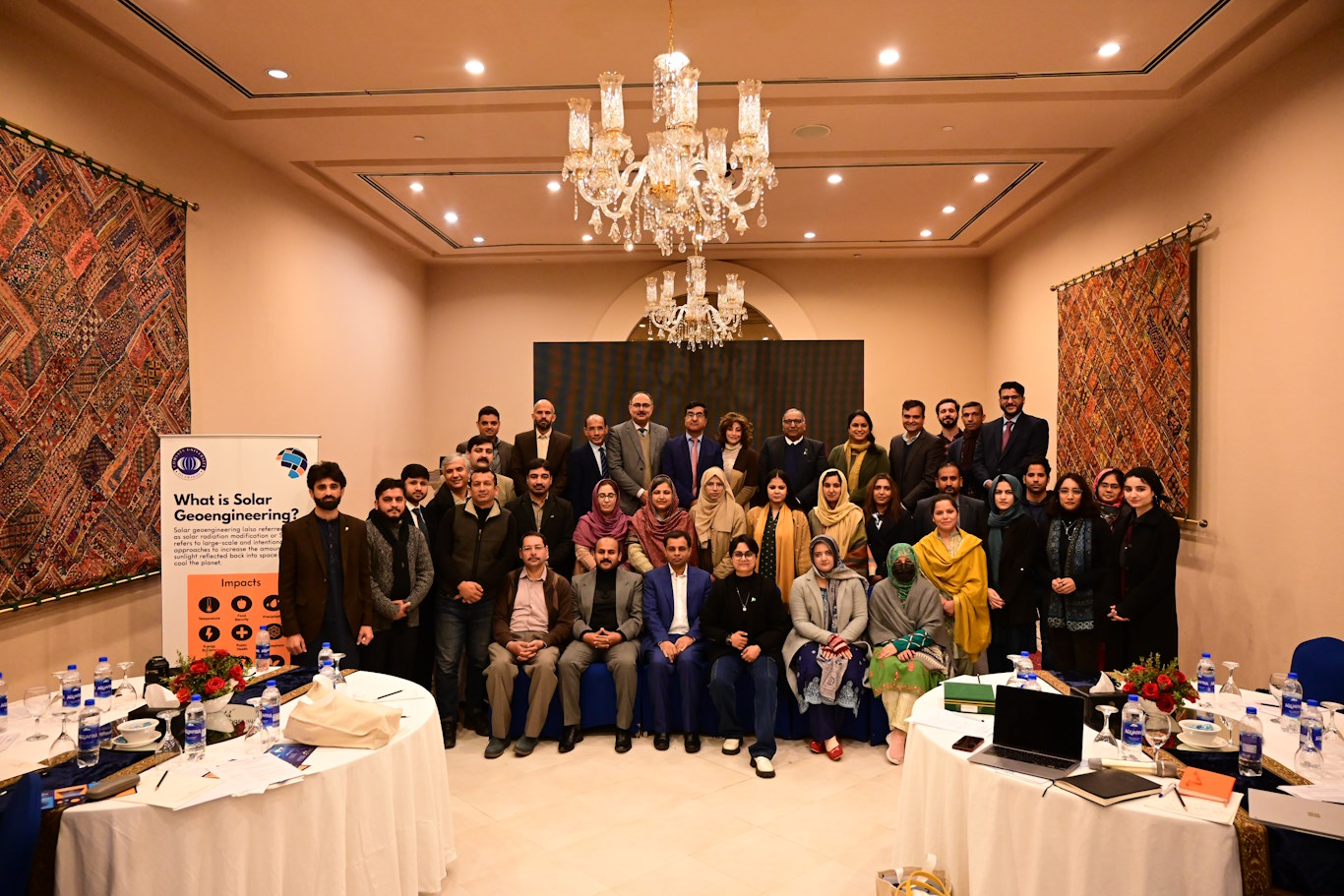Two-Day International Conference on Solar Radiation Modification, 3-4 January 2024
The COMSATS University Islamabad (CUI) in collaboration with US-based The Alliance for Just Deliberation on Solar Geoengineering (DSG) convened the first Two-Day International Conference on Solar Radiation Modification on 3-4 January 2024. Themed “Living with Climate Change: Awareness and Training on Solar Radiation Modification (SRM)”, this conference marked a significant stride in addressing climate change through SRM. SRM refers to large-scale and intentional approaches to increase the amount of sunlight reflected back into space to cool the planet.
In his opening remarks, Prof. Dr. Shamsul-Qamar, Head ORIC, CUI emphasizes the importance of SRM which offers a ray of hope in our pursuit of mitigating the effects of climate change. He reiterates a cautious approach toward SRM, grounded in scientific rigor, ethical considerations, and global collaboration. Prof. Dr. Athar Hussain, Department of Meteorology, CUI also highlighted the significance of first-ever conference in the history of Pakistan on SRM.
Executive Director, Carnegie Climate Governance Initiative (C2G), Janos Pasztor briefed the participants on the SRM potential and its possible outcomes, however, he emphasized the need of better collaboration and cooperation between the global north (developed world) and the global south (developing world) for addressing the emerging challenges due to SRM.
Imran Saqib Khalid from the World Wide Fund, described the role of altering the global mechanism of solar diffusion poses substantial challenges, involving inherent costs and risks. Aisha Khan, as a civil society representative, accentuated the need to apply scientific knowledge to influence policy effectively with respect to SRM.
Executive Director, DSG, Dr. Shuchi Talati informed the participants about the overarching gaps of knowledge, participation and decision-making across the global north and south in the realm of social geoengineering. She added that SRM governance needed public engagement and participation and inclusion for holistic and mutually beneficial deployment of the technology. “Pakistan being one of the most climate vulnerable countries has a vital role to play in the governance and decision making regarding the future of SRM. I am grateful that we have found such a fruitful collaboration with Prof. Dr. Athar Hussain’s team at the university’s Department of Meteorology. I want to emphasize that DSG is not advocacy oriented with respect to SRM approaches; rather, DSG focuses on empowering civil society and other policy actors to build their own perspectives and engage in governance activities.”
Conclusively, it's our collective responsibility to safeguard our planet for current and future generations. As representatives from diverse sectors, including government, academia, civil society, and the media, we hold the power to effect change. We must harness this power to foster dialogue, innovation, and sustainable action.

